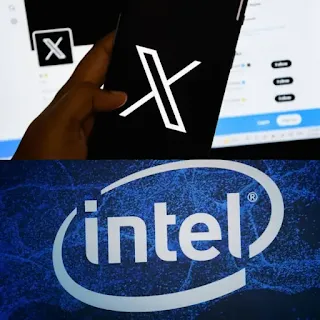The X platform (formerly Twitter) has begun imposing an annual fee of one US dollar on new users in New Zealand and the Philippines, in a move that the company says is aimed at combating bots.
Fortune magazine first announced the plan, which costs $1 per year to access key functions including tweeting, replying, retweeting and liking.
After the Fortune report, X, which is owned by Elon Musk, revealed the details, saying in a post: “As of October 17, 2023, we have begun testing Not A Bot, a new sign-up method for new users in two countries. This new test was developed to enhance our great efforts.” "Really to reduce spam, manipulation of our platform, and bot activity. This will evaluate a potentially powerful measure to help us combat bots and spammers on X, while balancing access to the platform with a small fee amount. In this test, existing users are not affected."
New accounts created in New Zealand and the Philippines will first be required to verify a phone number, then pay an annual fee of US$1 to be able to post, like, reply, repost, quote posts, and other platform services.
“New users who opt out will only be able to take read-only actions, such as reading posts, watching videos, and following accounts,” X’s post noted.
He continued: “This new program aims to protect against bots and spammers who try to manipulate the platform and disrupt the experience of other X users. We look forward to sharing more about the results soon.”
The terms and conditions state that the new fee is a beta program, and users who sign up must agree to pay a recurring subscription.
Elon Musk is considering banning “X” in the European Union after demanding a ban on pro-Palestine content
American businessman and owner of the social media platform X, Elon Musk, discussed the possibility of banning the platform in Europe, after the European Commission asked him to delete pro-Palestine content.
Business Insider magazine said, quoting an informed source in the company: “Musk is feeling increasingly frustrated due to the necessity of complying with the Digital Services Law. The businessman discussed the possibility of simply making the applications unavailable in the region or preventing users in the European Union from accessing them.”
The magazine wrote that although Musk met “at least twice” in 2023 with European Commissioner for the Internal Market Thierry Breton to discuss what X needed to do to comply with the Digital Services Act, the businessman “lost patience.”
Earlier, Politico reported that the European Union began an investigation into the social media network “X” after allegations that it was spreading misleading information about the Israeli-Palestinian conflict.
The newspaper indicated that an official request was sent to “X” requesting information about how the social network handles problematic content, which is an initial step to launching an official investigation.
The European Union issued an official warning to technology companies with legal penalties if they do not delete any content supportive of the Hamas movement from social media platforms.
Palestinian content and content supporting Palestine are facing a widespread deletion and removal campaign from social media networks, claiming that it is content that violates the laws of society.
Intel unveils a processor with a frequency of up to 6 GHz!
Intel revealed its new processor that it developed to provide excellent performance for computers and great speed in data processing.
Intel indicated that the 13900 KS processor is superior to the 13900 K processors that it had previously introduced in terms of frequency rate, as the frequency speed of some of its cores reaches 6.0 GHz, which gives it greater capabilities and faster speed in previewing data.
It is not possible for all cores in the processor to reach a frequency of 6.0 Hz at the same time. Rather, only two cores reach this speed if the processor is operating at the highest possible power.
The new processor features a basic power limit of 150 watts, compared to 125 watts for the older 13900 K processors, and it also supports the “Ultra Power Delivery” feature, bringing this number to 320 watts.
Intel published some videos showing the results of choosing the new processor, and indicated that it was starting to be launched at a price of $699.

